Community Entry Period
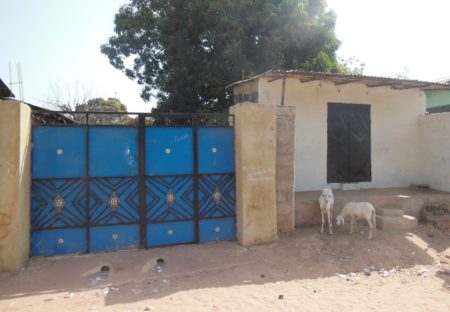
The first three months of Peace Corps service is called the Community Entry Period. During this time we are required to spend every night in our new location, because Peace Corps considers this time critical for integration and language acquisition. We arrived at our permanent sites on December 10, 2017, two days after the swearing in ceremony at the US Ambassador residence near the capital. I was eager to begin my service in Farafenni, with a wonderful host family, and a work assignment where I could build upon the previous volunteer’s achievements .
I spent the first two weeks, “fixing up” my new home. It is a spacious comfortable house, and the previous volunteer had left many nice items for me to use. I repainted the walls with oil based paints, had new curtains made by a tailor, and put vinyl on the floor, which makes it easier to keep my home clean in this very dusty environment. I will have photos and describe my home in a future post.
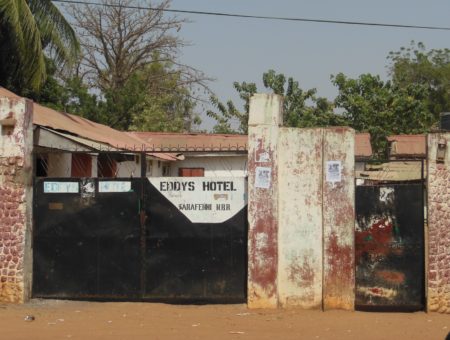
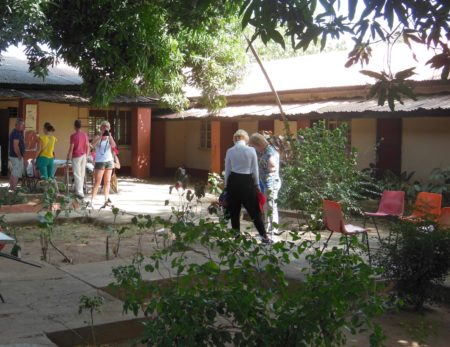
The second week of January LCF (Language and Cultural Facilitator) Bakary Camara, stayed at Eddys to support me during the Community Entry Period, and continue my Mandinka lessons. We would spend mornings in Eddys courtyard having lessons, then in the afternoon I would go out into the community to practice, returning at 5 pm to report on my progress. I was successful getting pants made at the tailor, shopping for produce, and buying vegetable seeds from a retired Agriculture Extension Agent. He also gave me local gardening tips, and free seeds for my school garden project.
Unfortunately, I failed at buying fresh eggs from the street vendors. My first attempt, I purchased hard boiled eggs instead of fresh, so Bakary and I spent time practicing my vocabulary. My second attempt, I also purchased hard boiled eggs. When we investigated the situation, we discovered the woman spoke Wolof, the other prominent language in the area. But, she was happy to sell me the eggs I was pointing at. Now, when I want fresh eggs, I buy them in the supermarket, where they speak English.
The fourth week of January, Daniel Demba (my other LCF), was at Eddys for a couple of days offering me more support. It is very comforting to have these wonderful caring individuals monitoring my progress. I actually feel like I’m beginning to “get it”, because the other day I was able to have a successful conversation with a woman in the market.
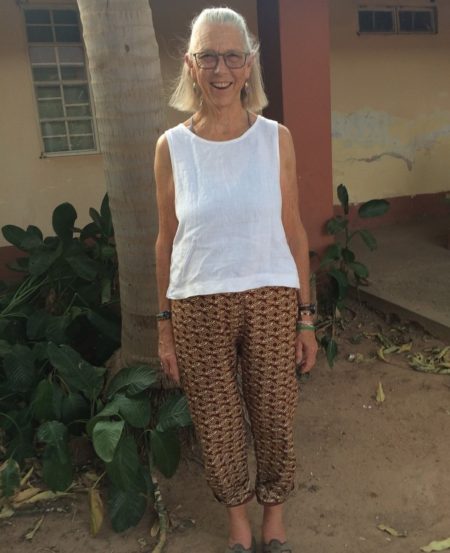
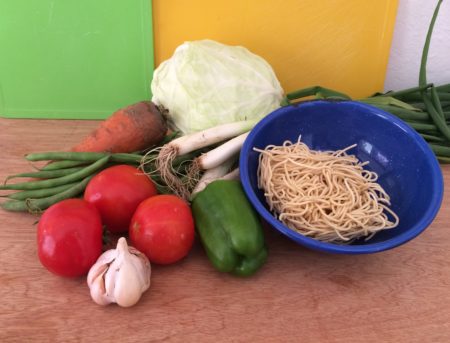
During these first three months, we need to complete a Environment Baseline Assessment. This report is due when we reconvene at the Peace Corps Training Site in Massenbeh, at the end of our Community Entry Period, in March. There are 4 elements to this report: 1. To get a clear picture of the community where we live and work; 2. Identify priorities for primary and secondary projects; 3. Provide a baseline against which to measure the impact of our work; 4. Form the basis for discussions between Peace Corps staff, supervisors, counterparts, community members, and the PCV about the progress of our projects.
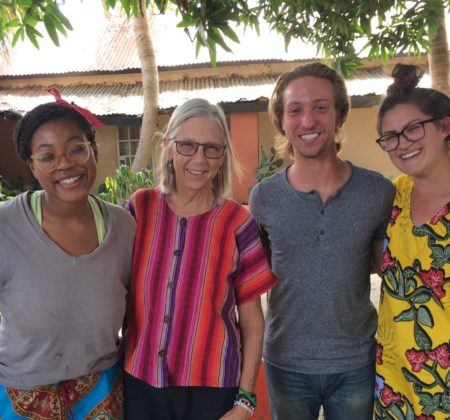
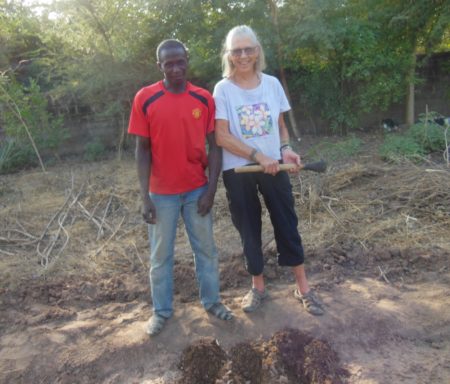
A new PCV will receive support during the Community Entry Period in many ways. Zach, a second year PCV, met with the new volunteers living near Farafenni, to review the Baseline Assessment process. It was very helpful to hear about his year of experience, learn about life in the other villages, and discuss how we can support each other. Peace Corps emphasizes the importance of taking time to become familiar with, and accepted by our community, before we begin our own projects. We are the strangers in this strange land. Understanding the cultural significance of the why and how tasks are performed, can enhance our ability to offer change. Often the best way to teach a new method, is to work side by side with the locals, demonstrating new techniques with our own hard work. If our results are successful, they will not go unnoticed.
Our permanent site community will select an individual to be the Community Representative for each new PCV. My Rep, Jatta, came to the Massembeh training site prior to my permanent site visit in November. He then accompanied me to Farafenni, showed me how to use public transportation, and introduced me to many of the significant members in my new community. When I arrived in December, he was invaluable in helping me settle into my new home and community. Also, during the first months, we select someone to be our project(s) counterpart. This person should be willing and able to continue our project after we complete our service. Peace Corps will also pay for a language tutor, if you feel you need more help. I am fortunate that Jatta is willing be fulfill all of these rolls for me. He is fluent in English, an accomplished horticulturist, very responsible, and has worked with previous volunteers. While we are working together in the school garden, he answers my many cultural questions, gives me tips about how to get stuff done in the community, and insists I practice my Mandinka.
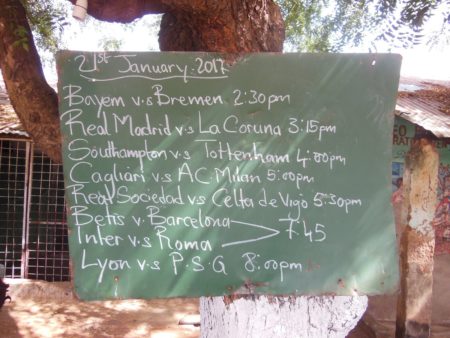
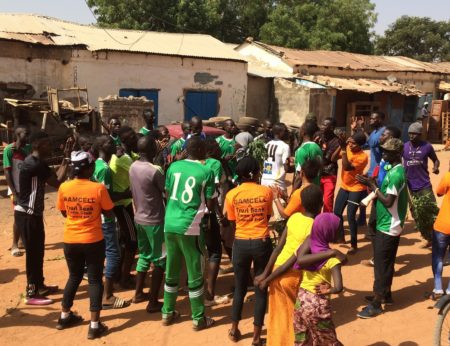
In addition to working on our Baseline Assessment, these early months are for familiarizing ourselves with the community resources, learning about the local cultural interests, and figuring out how to meet our personal needs. Soccer (football) is closely followed, and there are parades with drumming and dancing, to collect donations to be awarded to the champions. Gambians love to create music, and find multiple ways to be festive.
I wanted to vote in the January Special Election in Oregon, and contacted my county to find out how I could vote from overseas. They were extremely helpful, and emailed me all the documents I needed. My challenge was to figure out how to get them printed, signed, scanned, and emailed back to Oregon. The local internet cafe, where I had purchased my WiFi router, was the place to get this done. I am very fortunate to live in Farafenni, because most volunteers in The Gambia, live in very rural villages, without internet resources. It was very satisfing to vote from half way around the world.
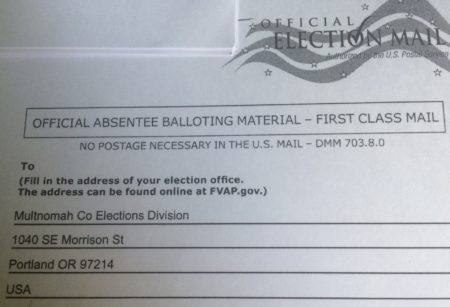
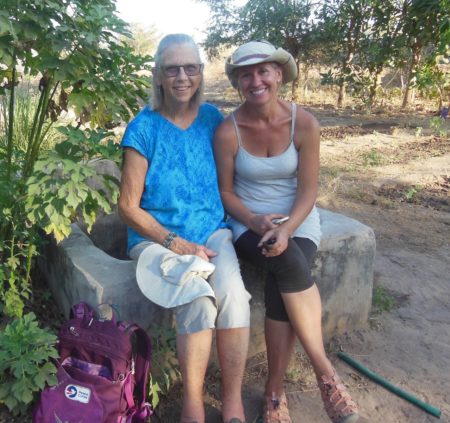
It was a special treat to be able to host a visitor in my new home. Polly Mueller is an Education PCV, with six months remaining before she returns home to Wisconsin. Her village is on the south side of the river, and she has accomplished a great deal during her time here. Most volunteers are recent college graduates in their 20s, and their interests are not always the same as mine. Polly is 50, married, with two grown sons, and we had a great time getting to know each other. We talked about our children, shared family photos, practiced yoga, and cooked delicious meals together. We also visited Jatta at the school garden, where he gave her lots of gardening advise, and 6 baby cashew trees to take back to her village. It felt like a mini vacation. I look forward to visiting her site, when my Community Entry Period time is completed, and I’m allowed to leave my site.
One thought on “Community Entry Period”
You are integrating quite nicely! Those pants you got made a great. It’s so good to hear about your journey!
Comments are closed.